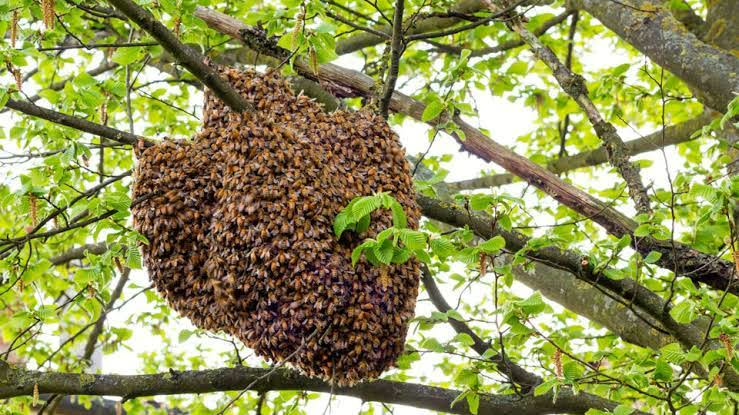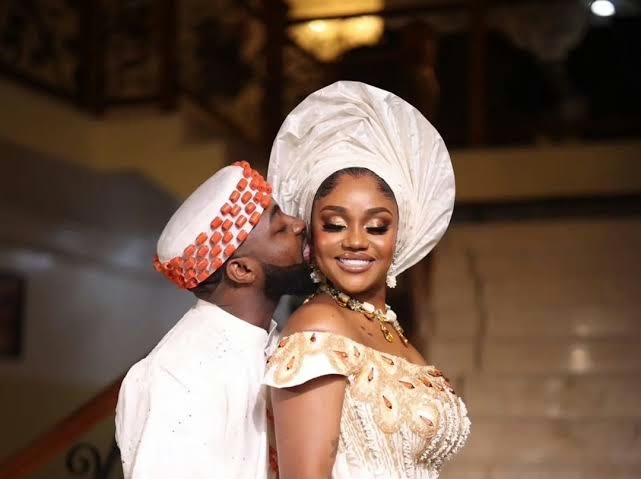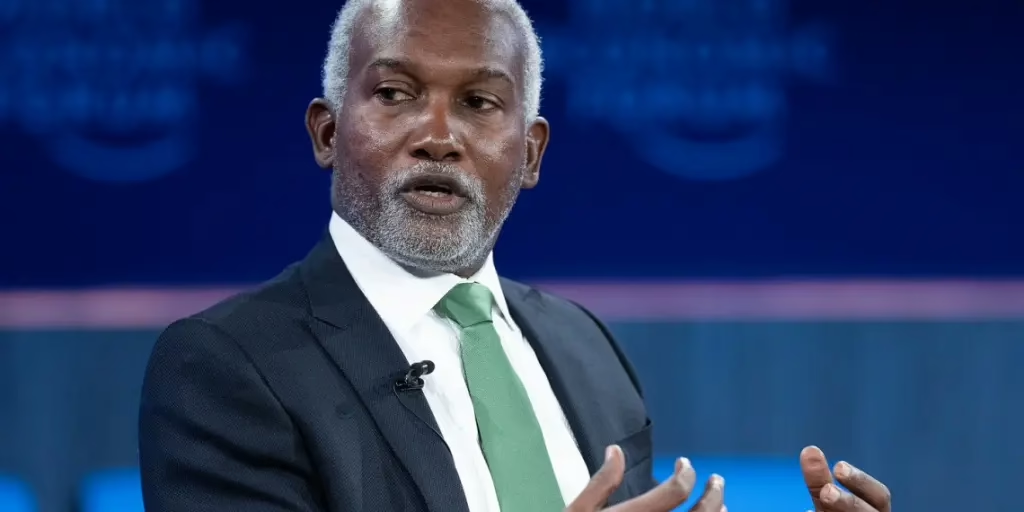It is no more news that the Supreme Court of Nigeria has reserved judgement in a suit filed by President Muhammadu Buhari and the Attorney General of the Federation, seeking an interpretation of Section 84(12) of the electoral act, 2022.
Starnews Nigeria reports that the seven-man panel led by Justice Mohammed Dattijo, says the date will be communicated to the parties involved in the suit.
The Apex Court reserved judgement to settle the controversies created by Section 84(12) of the electoral act, 2022, after taking arguments from parties and adopting their processes.
The section excluded many people from participating in political parties’ primaries thus giving room to only a few known as Adhoc delegates (elected few people) to determine the fate of aspirants which had generated a lot of controversies and attracted public outcry in the country.
Section 84 (8) and (12) stated respectively: “A political party that adopts the system of indirect primaries for the choice of its candidate shall clearly outline in its constitution and rule the procedure for the democratic election of delegates to vote at the convention, congress or meeting.” And that No political appointee at any level shall be a voting delegate or be voted for at the convention or congress of any political party for the purpose of the nomination of candidates for any election.”
This means only delegates elected for that purpose can vote at the convention. Although this section existed in the repealed Electoral Act 2010, another provision of that law allowed elected officials and party chieftains to vote as delegates at primaries.
Somehow, the federal lawmakers, who are some of the major victims of the omission, did not spot it until the races had started and the horses were on the tracks. It was already late when they revisited the clause and transmitted same to President Muhammadu Buhari who refused to sign it to date for the reason he has not stated.
Starnews Nigeria can report that the error was created by the National Assembly during the passage of the Electoral Act 2022 which affected the selection of party candidates by giving room to only a smaller circle of delegates than usual to determine the fate of the party’s aspirants ahead of the 2023 general elections.
Some Nigerians recently expressed concerns that the National Assembly’s amendment of some portions of the Electoral Act, 2022 was unfair. Some of the popular views thought that Section 84 was designed to boost the chances of certain persons in the electoral race by giving chances to only a few individuals to determine the fate of representatives of political parties ahead of the general election.
Starnews Nigeria can report that the section had caused the loss of many heavyweight aspirants whose fates were determined by a few individuals who were easily influenced and were hardly known by their parties.
Just yesterday, Ex-President Goodluck Jonathan attacked the National Assembly over the said Section 84.
He accused the federal lawmakers of making laws to target individuals and groups, rather than observing the long-held maxim that like judges, legislators must be “blind” in the process of law-making, instead of dishing out self-serving legislations.
The former president was speaking in Abuja at the presentation of a book titled: “Political Party Governance,” authored by a former Minister of State for Power, Dr Mohammed Wakil.
Jonathan, who rated the current primaries as a total failure insisted that if it was to be rated, the process would not have a pass mark and would be scored less than 25 per cent.
Picking Bayelsa as a case study, the former Nigerian leader characterised the process as “horrible,” stating that for instance, certain people who did some “magic” created just two wards in a particular state constituency where six elected delegates were to determine the fate of six aspirants in the Peoples Democratic Party (PDP).
“Let me use this opportunity to advise the National Assembly that laws must be designed to solve problems, not to create problems and that laws must be made assuming that those who are making the law are blind, just like the judges.
“That is so that they cannot be able to target an individual or a group of individuals and when you go into the system of making laws (like it is being done), you will make this terrible mistake that has messed up the whole primaries that are going on.
“ If you have not been involved in the process of primaries, you will be happy or you may not be happy, but for those of us who have been involved, it is terrible,” he maintained.
Jonathan stressed that those who are current delegates could easily be bought over, decrying how low the standards have fallen such that aspirants are now openly retrieving monies paid to the delegates.
“Take my local government for example. My local government by divine providence has me as a former president, we have former governors, former deputy governors, former senators and all the rest.
“Then only one elected delegate that you don’t even know where it is coming from, will come to Abuja to select who becomes the presidential candidate. Is that the kind of democracy that we want to practice?” he queried.
The former president alleged that the lawmakers had succeeded in strangulating the electoral system by going as far as determining the mode of primaries, arguing that every political party has its peculiarities.
While contending that laws must not be made at the whims of individuals, Jonathan picked holes in the argument of those accusing Buhari of not immediately signing the amended sections sent to him by the lawmakers, saying that assent to bills must go through a thorough process.
“This controversial Section 84, to me, if you read through that law, 80 per cent or more of that section has nothing to do with it and should be expunged from the Electoral Act because the National Assembly cannot make laws and lump up all the political parties together.
“They must have the leverage to do things differently. Political parties have different reasons for being set up,” he said, giving the instances of parties in South Africa.
“Two parties cannot do things the same way. Creating a situation whereby every party must have the same way of doing things as to who will represent them is nonsense. It doesn’t help the practice of democracy. We must allow the parties the leverage,” he explained.
The former President pointed out that since the Independent National Electoral Commission (INEC) was already regulating the parties, they must be allowed to choose the method they would adopt in selecting candidates, as documented in their constitutions.
“Parties are not parastatals of the government. And the national assembly cannot make laws to strangle the political parties and that is my thinking on this issue that is quite controversial,” he said.
He further called for the institutionalisation of democracy, instead of the current ad hoc practice by the lawmakers.
“We have to institutionalise democracy. What is the quality of delegates where some people are even going back to delegates to ask for a refund when they fail election? This is extremely disgraceful,” he declared.
He added: “In some countries, you cannot give a gift to the voter like what we normally do here where bags of rice and salt are shared. You are inducing the electorate and that’s a criminal offence and the National Assembly should be able to criminalise this.
As it is now, Jonathan argued that any criminal can now aspire to the highest office of the land as far as the person has the money even if he’s an armed robber.
“If I tell you the kind of people that are coming up to pick the people that will represent us, you will feel sad. So the National Assembly must have to wake up.
“Some people are even blaming the president that he did not sign this, he did not sign that and that is another area that the national assembly must wake up to. You cannot wake up the president and say come and sign a bill, whether a new bill or an alteration of an existing one.
“In this matter, the president can’t be blamed. Before the president signs any bill into law, it passes through different processes after the national assembly and their committees finish their work,” he noted.
According to him each member of the National Assembly has at least five aides who are expected to be involved in vetting any bill passed to the president, accusing the lawmakers of not doing their jobs properly.
“The Speaker has more and the Senate President has more. What is their duty? Is it just to be following the speaker and the senate president like a troop of monkeys or a bevvy of birds?
“They are meant to read before it goes to the clerk of the national assembly that also has his aides that will also read through that draft before it goes to the president and that’s bureaucracy at the government level so that the president is not meant to make silly mistakes.
“So nobody should expect the president to just wake up and say come sign this bill because it must go through a process and people must do their work in this country.
“You cannot just be taking money and be sleeping and for the national assembly, this is a good wake-up call because they have various aides who are employed to do this work.
“And their laws must not target individuals or groups of individuals. They must be laws that will improve governance and not be made for certain people to have an advantage over others.
“The whole of this primary that is going on is a mess. If you know the standard practice, you will ask teachers here to score this primaries and it cannot get more than 25 per cent and you cannot use that process to elect the president.
“The process is already failed and it is not good for this country. Yes, we will manage and move on and I pray that good people should emerge, but we hope that what has happened this 2022 will not happen again in this country,” he said.
Confused by the said section, President Muhammadu Buhari and the Attorney-General of the Federation and Minister of Justice, Abubakar Malami, approached the Apex Court by filing a suit at the Supreme Court, seeking an interpretation of the controversial clause in the Electoral Amendment Act 2022.
At the proceedings on Thursday, the All Progressive Grand Alliance (APGA), and the Nigeria Bar Association (NBA), brought an application, seeking to be joined as interested parties.
APGA, however, opted out by withdrawing its application for joinder which was subsequently struck out by the Apex Court. The NBA, however, stood firm, insisting that Nigerians do not have representation in the suit, that is why it has opted to join the matter.
In the suit, the defendants were the National Assembly, Speaker of the Rivers State House of Assembly, and the Attorney General of Rivers State, on account of this the NBA insisted it was to represent the interest of Nigerians by joining the suit.
Counsel to President Muhammadu Buhari, Lateef Fagbemi (SAN) objected to the application of the NBA to be joined either as an interested party or as amicus curiae in the suit.
Fagbemi objected to the NBA joining as amicus curiae in the matter, insisting it holds an opinion and is taking sides on the matter already. Eventually, the plaintiff counsel conceded to the application for NBA to be joined as amicus curiae, stressing its submissions on the matter will be strictly on giving an interpretation of the said Section 84 (12) and not join issues.
The panel in a short ruling joined the NBA as an Amicus curiae.
An amicus curiae is an impartial adviser to a court of law in a particular case.
Counsel to the Speaker of the Rivers State House of Assembly and Attorney General of the State, Emmanuel Ukala, citing Supreme Court Additional Jurisdictions Act, said Buhari lacks locus standi to institute such a suit as he is not directly affected by the Section 84 [12] of the Electoral Act.
He said the appointees affected by the said Section Electoral Act should have been the ones to institute the suit for being shut out from exercising their rights.
Nigerians and many political actors now await the judgement of the Supreme Court on this controversial clause of the amended Electoral Act.
Some lawyers who spoke to Starnews Nigeria said the Supreme Court judgement will set the record straight and its interpretation may have a direct impact on all the already conducted primary elections by political parties and the yet to be conducted primaries for presidential elections.
Some lawyers were of the view that all the conducted primary elections may be declared inconclusive to conduct fresh ones to include those excluded from voting. Another set of lawyers said it may only affect the yet to be conducted presidential primaries but the popular view disagreed as they claimed such judgement would provide lacuna for more litigation as those disqualified from voting including aspirants that already lost at the primaries could challenge their party’s primaries in court, Starnews Nigeria reports.










Leave a Reply